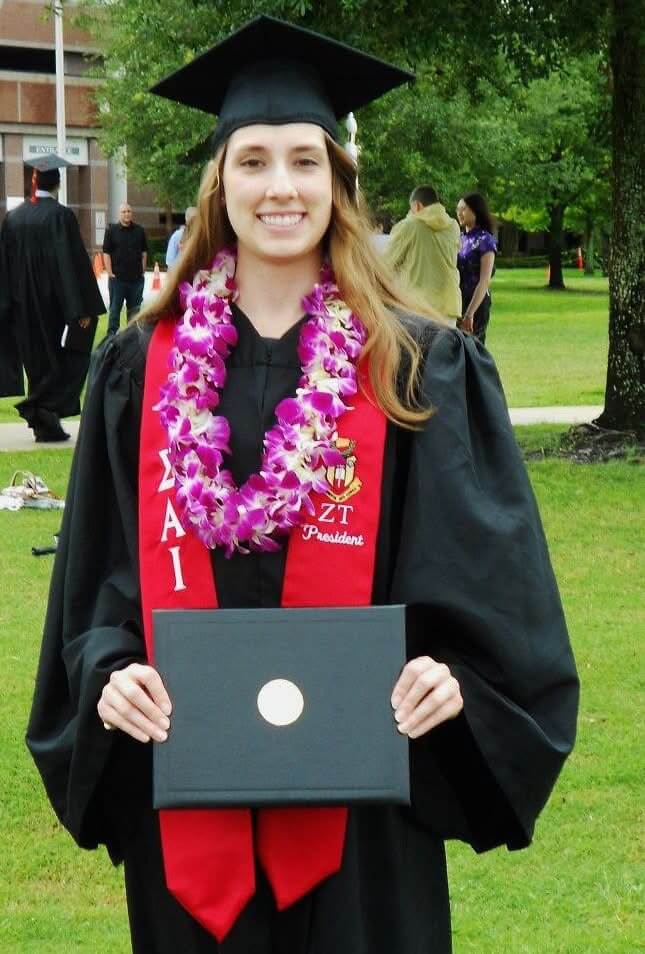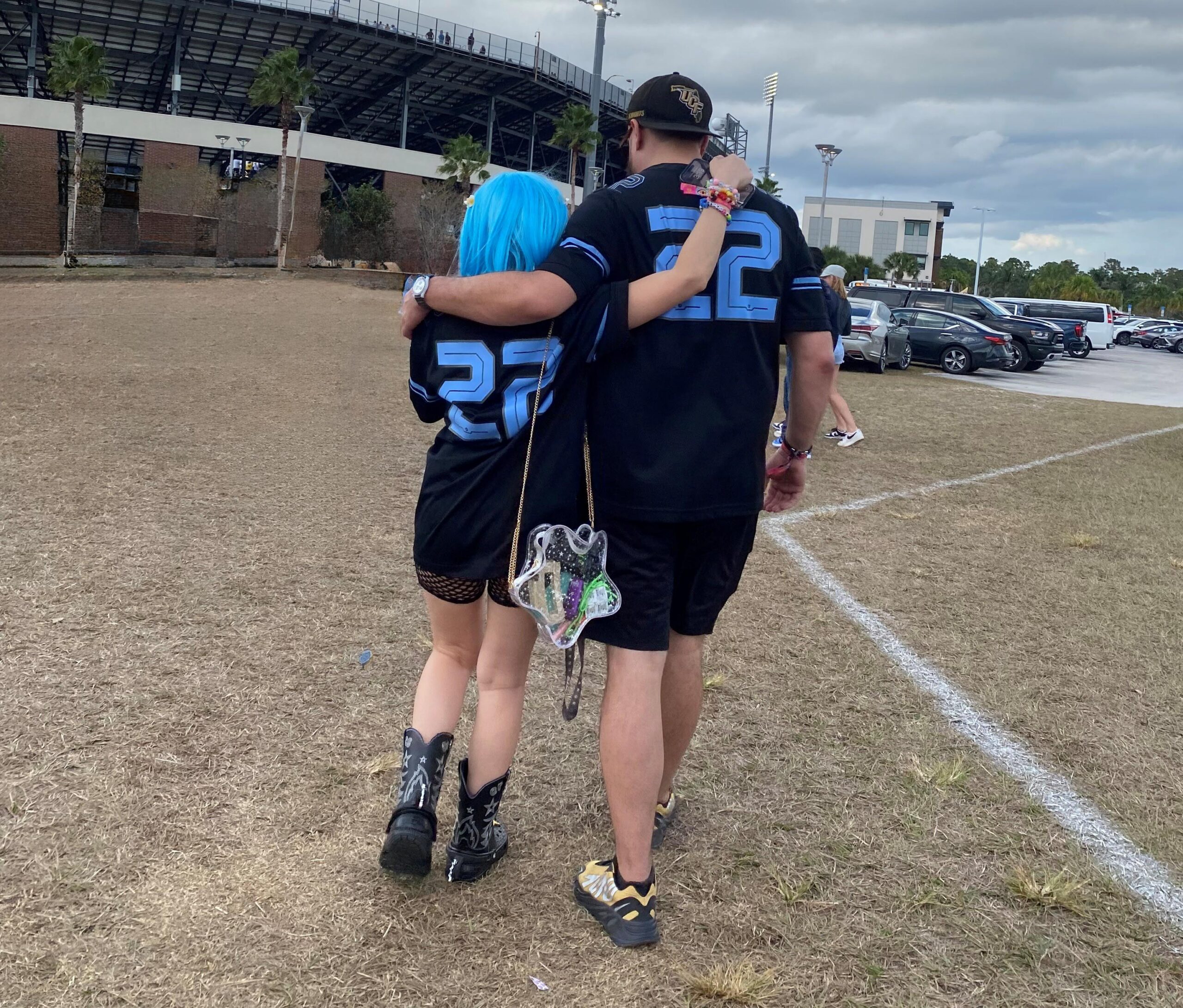Order Up: Bryan Clements ’93, Newest President of Yard House
The Clements family, pictured above, is back in Central Florida to stay. Bryan Clements, and his wife Amanda, along with their children, Joel, Camryn and Natalie, love being closer to UCF.
Bryan Clements ’93, was named the president of Yard House earlier this year. His appointment to the head of one of Darden Restaurants’ ten full-service dining concepts is the latest advancement in his nearly 20-year career with the company.
Clements grew up in Maitland and attended Maitland Junior High and Winter Park High schools. He had his sights originally set on going to Florida State University, but his mother gently encouraged him to stay a little closer. He could always transfer later, she said.
“I thought UCF wasn’t going to be far enough away for me,” Clements says. “I was wrong. I fell in love with UCF.”
Clements says he was initially concerned the then-smallish campus wouldn’t provide enough of the “college experience” that he craved.
Even though he lived close enough to commute to school, he was able to live in the “football” dorms; he wasn’t involved in the program, but looking back, figured it was a spacing issue that had placed him there. He eventually joined a fraternity and immersed himself in those activities and his studies.
UCF’s football program recently brought him back to campus; his son attended football camp here and had considered attending but instead chose FSU, Clements says.
“As I was driving through campus, I couldn’t believe how much it had changed,” Clements says. “But even with all the changes, I still had flashes of things I remembered. It’s funny how things come back around, and it was also pretty neat to see how the campus has grown.”
When Clements was going to UCF, he worked at Bennigan’s in Altamonte Springs, and Shells Seafood Restaurants in Orlando. He worked at the latter until he graduated from UCF – on his way to a “real job.”
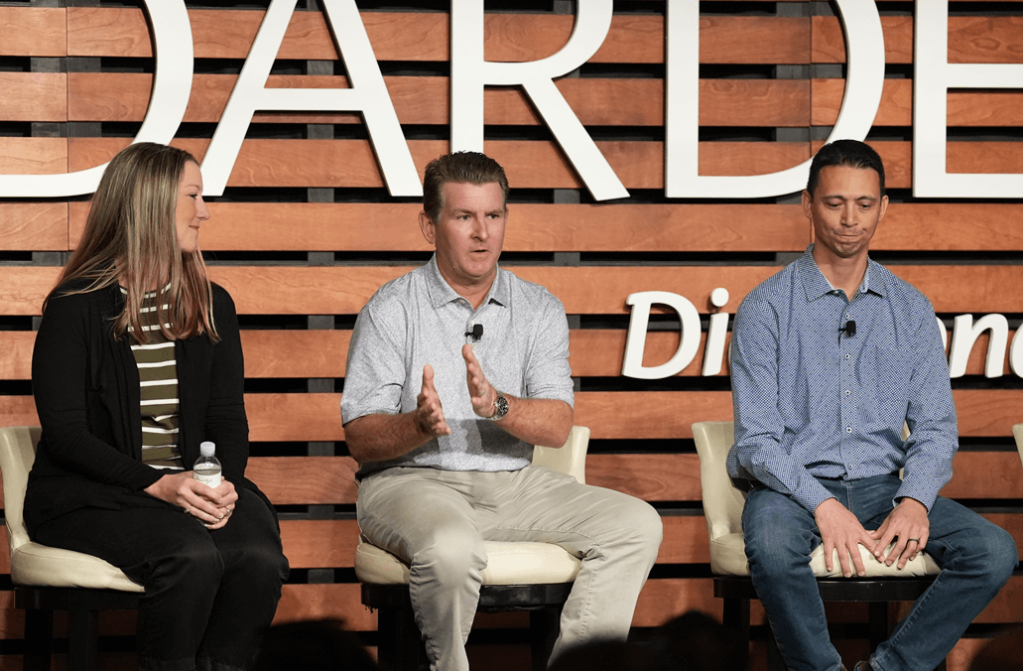
He was going to be a stockbroker, like his father. But as Bryan was beginning his studies in UCF’s College of Business, his father told him the tax laws had changed, and he cautioned against his son entering the field. So, after two years studying finance, Clements changed his major to business administration to give him more options after graduation. He was confident that by studying finance and business at UCF, he would be well prepared for the future.
“I knew I was never going to work in a restaurant or be a restaurant manager,” Clements laughed.

One of the “jokes” about working in the restaurant industry and going to school at the same time used to be that when you graduated, you would get a “real” job, Clements says.
Perhaps one that involves sitting at a desk, crunching numbers, and not yelling for a food order that was taking too long. Clements tried that, for a while, after graduation.
“I had the dream job in banking, working 9 to 5. I had long lunches, weekends off… and I was miserable, utterly miserable, just seeing the same people every day,” Clements recalls.
He went back to Shells on one of those long lunch breaks. He still had a lot of friends who worked there, and his former boss, Lindsay Trim, came up to him, shook his hand and asked how the banking job was working out.
“It’s funny you should ask,” Clements said. “Tell me all the reasons I wouldn’t want to be a restaurant manager.”
Anyone who’s ever worked in a restaurant knew the answer to that. It’s late nights. It’s weekends. It’s holidays. It’s dealing with a lot of different personalities and it’s organized chaos at best.
“But,” Clements says, “He also told me if I could get past all that, it can be an extremely rewarding career, and he thought I’d be good at it. And that was in 1995.”
Before he made up his mind, Clements thought he would try a career in digital sales. (OK, they were pagers.) He was extroverted and felt like he had a good banter game. It would be a piece of cake for the confident young man.
When Clements asked for sales leads for the products, his boss plopped down the Yellow Pages on his desk and told him to start calling.
“I love to talk to people,” Clements says. “I can talk to anybody. But there is a huge difference between talking to people in a restaurant who want to be there, versus calling up people who don’t want to talk to you. Cold calling, it turns out, was not my forte.”
The short-term pager sales gig was what led Clements back to the restaurant industry, and he’s never looked back.
He never predicted the wild success that followed that decision, he says. It still kind of feels like a far-fetched dream, and there are moments when he still feels like “Bryan the Bartender.”
Bryan the Bartender could read his customers, figure out quickly if they wanted to talk or just sit quietly. He could tell, by the initial tempo of a Friday or Saturday night, how the evening was going to pan out for him fiscally. People came to his bar – again and again – because he was good at what he did.
In a way, Bryan the Bartender was building his own business within the walls of a seafood restaurant. He provided a great product with personalized service, treated his customers as if they were his guests, and simultaneously kept an eye on what was going on in the “back of the house” to forestall any potential pitfalls.
If Clements were to distill the elements of his current success, he would probably allow that the restaurant industry is a social business, with the ability to communicate with others as its most important “capital.” He may have developed some of the social skills requisite for business at UCF; relationship-building was an integral component of fraternity life. But as Clements got older, he also developed a leadership style that worked.
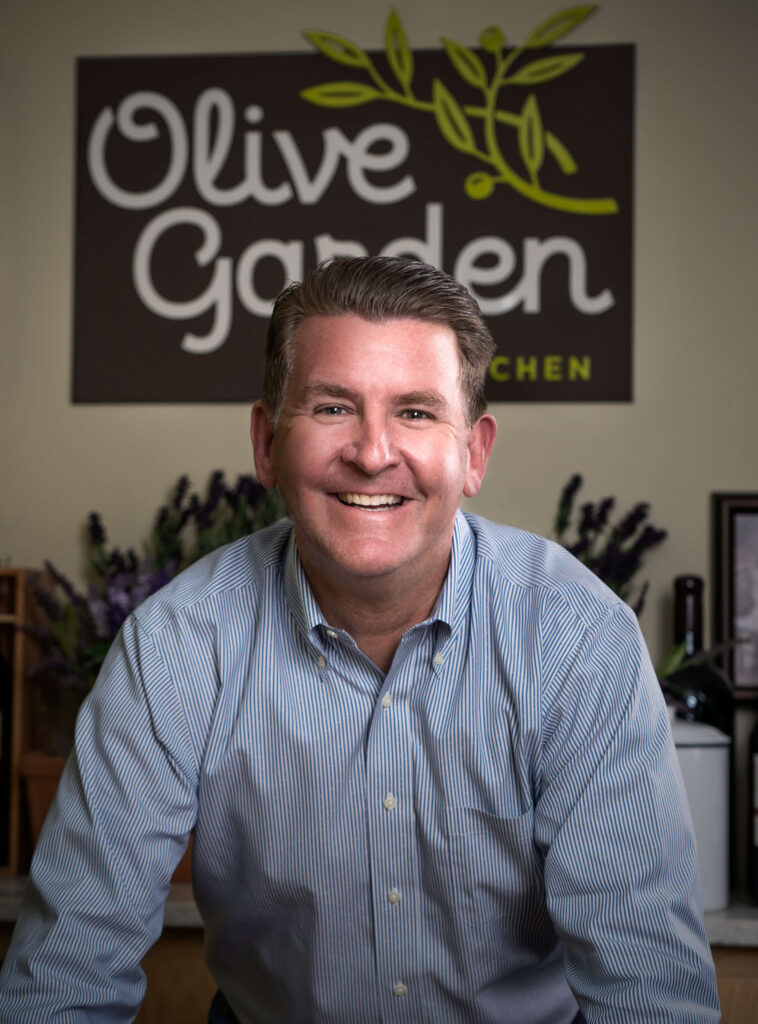
As a manager, part of his leadership skills evolved from the daily “classroom” of having 140 “students” in the restaurant who are there to learn skills from managers like Clements. They may not have ambitions to advance beyond their current position, Clements says, but they are usually very interested in maximizing their income. It takes the entire team to make a successful restaurant, including motivation and inspiration from leadership.
“One of the hardest employees I ever had was when I was a director at the age of 28,” Clements says. The employee was a retired Marine, nearly twice his age, and wanted no part of Clements.
When Clements finally broke the ice with his employee, the man pulled him aside.
“He apologized to me for giving me such a hard time and said that I deserved more respect than he had given me, and that I was going to be a great leader.”
By pretty much any metric, Clements has met his former employee’s prediction.
After leaving Shells, Clements was the director of operations for Champps Americana, where he supervised ten restaurants in Florida, Georgia and North Carolina. He then spent seven years as the director of operations for nine LongHorn Steakhouse Restaurants in North Carolina and Virginia, followed by twelve years in operations for Olive Garden, the largest casual dining restaurant in the country.
Clements was Olive Garden’s executive vice president during the pandemic. He found out that everything was being shut down while he was on vacation at a Florida beach.
“I’d love to say that we had a contingency plan for a global pandemic,” Clements says. “But we didn’t. Hurricanes and natural disasters, sure, but we never considered there would be a day the government would tell us to close all our restaurants.”
Clements and his wife had noticed foreboding signs that something was happening, of course, but their vacation was booked, and their family would all be together. They would be fine; everything would be fine.
Clements and his son were about to take a swim in the hotel pool when his phone rang. It was his boss. He cut to the chase: You’re at the beach, right? Well, you need to come back to the office as soon as you can because we’re shutting down all the restaurants tomorrow.
“He told me, “It’s getting really ugly,’” Clements recalls.
And it was ugly, for a while, Clements says. But after the initial shock passed, Clements says that the multiple service lines of Darden found their new normal and adapted.
“People can still surprise me,” Clements says. “I have found that although people have a certain, undefined threshold, there is always an opportunity to get them to be a little better than they thought they could be. And when that happens, they not only surprise themselves, but they also are appreciative of their leaders.”
Clements says that he is always looking for somebody who can do more than what they are currently doing. Untapped potential is one of the greatest wastes of human resources and can cause employees to burn out or leave a company.
“It’s really, really exciting when you’ve got people that never thought they would be able to have their own restaurants with their name on the door as they come in.”
One of my favorite stories was a general manager that I had when I was with Olive Garden. He was in South Florida, and I remember him coming to his first General Manager conference. He came up to me and started thanking me for all that I did for him and he’s starting to break down into tears. He was almost making me cry. He says, “I need you to understand you’ve completely not just changed my life. You’ve changed my whole family. My son is going to be the first person to ever go to college in the history of my family tree. And that’s because of you. And I was like, that’s not because of me. That’s because of you, you did that.”
Every few weeks, Clements addresses a new manager-in-training class. He welcomes them to the company, but also tells them he realizes that this business is not for everybody. If they realize that, they should get out as soon as they can and go find something that makes them happy – not just the work, but the people they work with. And then he tells his story about how he found something that made him happy.
Clements has had a pretty good record of job happiness. In his newest role, President Bryan is taking on new responsibilities in finance, marketing and human resources in addition to operations. Yard House is under the Darden umbrella but is definitely not Olive Garden. Clements allows that staying with Olive Garden, a company he led for twelve years, might have been easier than jumping into a new restaurant concept.
“Yes, there is a certain sense of drinking from a fire hose,” Clements laughs. “But I am super-excited to be here and am enjoying learning something new every day.”
Clements is especially excited by the opportunity to create a great team. He has realized, over the years, that there are sports analogies between great coaches and great restaurant managers.
Both are “good pickers.”
“I feel like I’ve had a pretty good ability to be a great “talent scout” and getting the right people on my team,” Clements says. “And as I’ve gotten into these more senior roles, the challenge is to get people who are already at the top of their game to do just a little bit more than they thought they could. Just be a little bit more successful.”
That leads to a trickle-down effect in which the whole organization also becomes more successful, Clements says. He has an implicit fiduciary duty to his shareholders, which includes many Darden employees, current and former. [full disclosure – the author is also a former Darden employee and current shareholder]
Bryan the Bartender is never far away from Bryan the President.
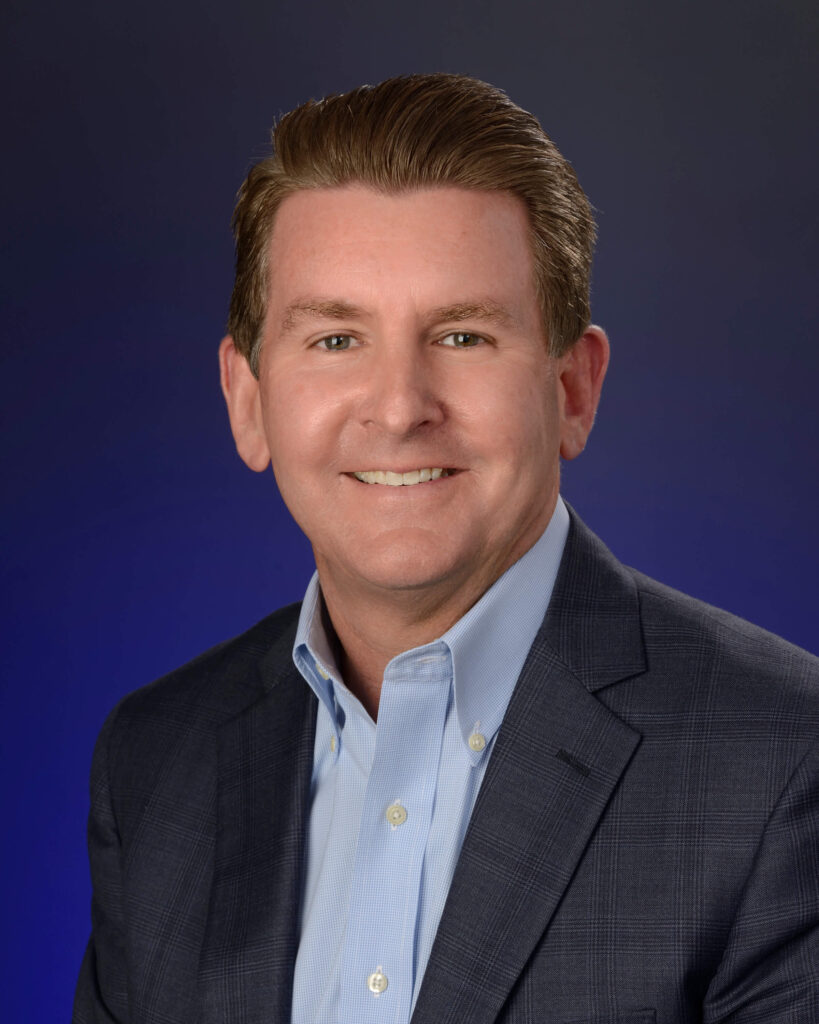
“I still remember getting my rear end kicked on a rough Friday night shift,” Clements says. “I remember what it was like to get yelled at by a guest when things weren’t going right. It is still funny to me that when I go to one of our restaurants, the employees recognize me and want to take a picture with me.”
Clements’ wife, Amanda, usually sets them straight. “That’s just Bryan.”
Clements and his family still go out to eat once or twice a week. He and his wife tell their children that this is not normal.
“But I’m in the industry, and I love to see what else is going on out there,” Clements says. “I’m not looking to see what the other restaurants are doing poorly; I really like to see what they are doing well. Maybe it’s the way a server talked to me, or the cool way they did their bread service. After all these years, I know there are still new things I can learn.”
After moving around for many years due to his career, Clement says he is so happy to be back in the Orlando area.
“It’s been a great ride. I’m so happy that I’m still in Orlando and I still get to get over to UCF for the games. I’m so proud of what my university has become. When I was a kid, and it was referred to as a commuter school to where we are a dominant Big 12 school? It’s really, really cool.”
Clements says that he hopes all Knights – whether they are “fresh outs” or already established in their careers – can also find fulfillment from their careers.
“Make sure you’re getting something from your work, because if you’re in your early 20s, you probably have about 40 years of working life. That’s more than half your life, and if you’re just not fulfilled, and you’re not enjoying what you’re doing, there are plenty of other jobs out there.”
Not all of us knows exactly what we want to do in life, Clements says. Keep an open mind and talk to other people about the work they do. And if you love what you do, never underestimate the impact that you can have by sharing your story.”
Looking back on the South Florida general manager who was profoundly grateful to Clements, he says he doesn’t know exactly what he did for him.
“I never set out to impact people, and I get goosebumps every time I tell that story,” Clements says. “But I think most people can change lives in a lot of different ways, whether that’s at your job, or through your hobby or at your church. You should enjoy your life, because we only get one of them, and make sure that you’re happy and make sure that you’re fulfilled. And keep Charging On.”
